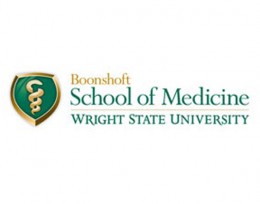 DAYTON, Ohio—John is a deaf alcoholic. He began drinking when he was eight years old.
DAYTON, Ohio—John is a deaf alcoholic. He began drinking when he was eight years old.
For years he tried to fight his addiction, but as the only deaf person in his community there was no treatment available for him in his hometown. Then he learned about eCAM, a program offered by the Wright State University Boonshoft School of Medicine, and help was just a click away.
The eCAM program was created by the medical school’s Substance Abuse Resources and Disability Issues (SARDI) program through its Community Advocacy Model (CAM) program. CAM also operates Deaf Off Drugs and Alcohol (DODA), the only program in the United States that offers electronic, videophone or computer-assisted 12-step support meetings for the deaf.
CAM established the first technology-assisted care program in January 2008, when DODA was funded under an e-therapy grant from the U.S. Department of Health and Human Services’ Center of Substance Abuse Treatment.
In an effort to expand substance abuse care in Ohio, CAM and the Ohio Department of Alcohol and Drug Addiction Services (ODADAS) partnered to submit a grant proposal to expand technology-assisted care to Ohioans experiencing barriers to treatment, especially people with disabilities or mental illness, and deaf people, military service members and their families. In October 2010, the Substance Abuse and Mental Health Services Administration (SAMHSA), a division of the U.S. Department of Health and Human Services, awarded the partnership a three-year, $1.2 million grant. Services began in January 2011.
eCAM provides alcohol and other drug treatment services in an out-patient, electronic treatment environment. Consumers living anywhere in Ohio can access counselors and case managers through live videoconference technology using a computer and webcam with high-speed Internet connection. The system is encrypted and services are completely confidential.
The project will provide up to 240 individuals in Ohio—including individuals who are deaf, have a disability or mental illness, or are military service members, including those with traumatic brain injury or post-traumatic stress disorder and their families—with culturally competent, appropriate and accessible programs, materials and support groups.
John is one of those 240. After many attempts to get treatment in his hometown, John contacted an eCam counselor by videophone. She did an assessment using American Sign Language. He was able to meet the counselor weekly and attend videoconference group sessions with other deaf people in Ohio. John could talk to peers with similar stories for the first time and realize he was not alone. Now he has help that is 150 miles away and in his own backyard at the same time. Technology-assisted care from qualified professionals gave him the help he needed.
All services through the program are grant funded, and no health insurance is required. The services include alcohol and drug assessments, one-on-one counseling, group counseling, case management, recovery support and the use of a treatment-specific, personal recovery web page linking consumers with all of their electronic recovery support material. Each treatment plan is individualized and there are no time limits on length of treatment.
For more information or to enroll in the program, contact Susan Fraker, technology assisted care coordinator, 937-222-2400, ext 231, videophone 937-641-8173 (for deaf or hard of hearing) or susan.fraker@wright.edu.

 Difficult conversations
Difficult conversations  Celebrated Wright State alum serving his community as surgeon
Celebrated Wright State alum serving his community as surgeon  Wright State University Foundation awards Students First Fund grants
Wright State University Foundation awards Students First Fund grants  Cosmic collection
Cosmic collection  Wright State revives student-faculty collaborative writing journal
Wright State revives student-faculty collaborative writing journal 